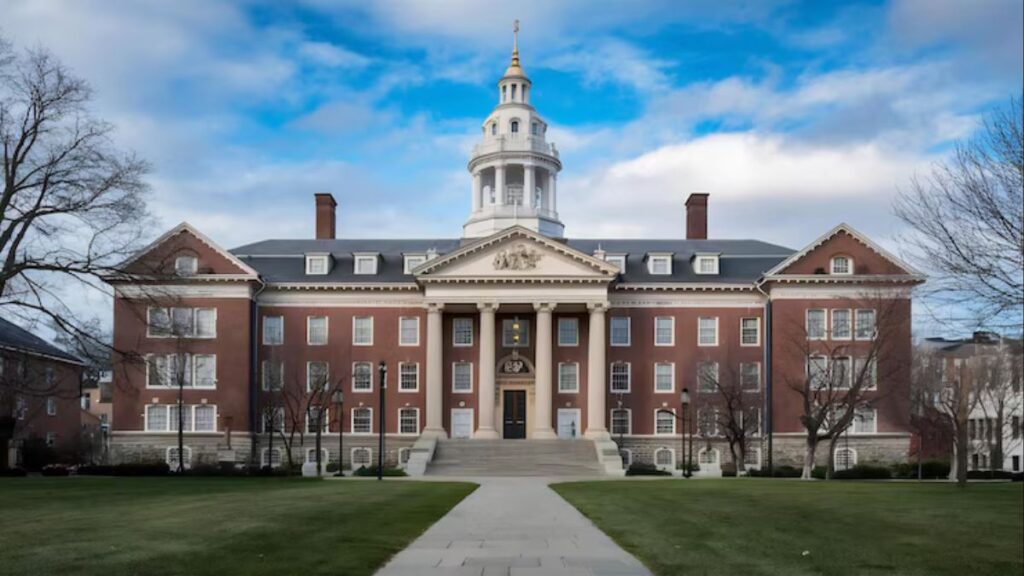Introduction
Harvard University, established in 1636, stands as the oldest institution of higher education in the United States. Located in Cambridge, Massachusetts, Harvard has cultivated a reputation for academic excellence, groundbreaking research, and a commitment to developing global leaders. With a diverse student body and a vast array of programs, Harvard continues to influence various facets of society, from politics and business to science and the arts.
Harvard’s inception dates back to a vote by the Great and General Court of the Massachusetts Bay Colony, aiming to create a college to train clergy for the new commonwealth. In 1639, the institution was named Harvard College in honor of its first benefactor, Reverend John Harvard, who bequeathed half of his estate and his entire library to the college. Over the centuries, Harvard evolved from a modest college into a sprawling university comprising multiple schools and faculties, each contributing to its esteemed status.
Academic Excellence
Harvard offers a comprehensive range of undergraduate, graduate, and professional programs across various disciplines, including arts, sciences, law, medicine, business, and engineering. The university emphasizes critical thinking, innovation, and research, providing students access to state-of-the-art facilities and resources. Harvard’s commitment to academic rigor is reflected in its consistent top rankings globally, including a #3 position in the 2025 U.S. News & World Report’s National Universities ranking .
Expand your knowledge and check out more posts on our blog!
Global Impact and Alumni
Harvard’s influence extends beyond academia. Its alumni network includes eight U.S. presidents, numerous foreign heads of state, Nobel laureates, and leaders in various industries. The university’s research initiatives have led to significant advancements in medicine, technology, and social sciences, impacting lives worldwide. Harvard’s dedication to fostering global leaders underscores its role in shaping the future on an international scale.
Recent Challenges
In recent times, Harvard has faced challenges concerning international student policies. In 2025, the U.S. government imposed restrictions affecting Harvard’s ability to enroll foreign students, citing concerns over campus safety and alleged ties to foreign entities . This move threatened the status of thousands of international students and sparked legal battles, with Harvard contesting the decision as unlawful and retaliatory. The situation highlighted the university’s reliance on a diverse student body and its commitment to inclusivity.
Harvard’s Schools and Colleges
Harvard University is comprised of 13 distinguished schools and institutes, each with its own unique strengths and contributions to academia:
-
Harvard College: The undergraduate liberal arts college and the heart of the university.
-
Harvard Business School (HBS): Globally recognized for producing top-tier business leaders and MBAs.
-
Harvard Law School (HLS): One of the most prestigious law schools in the world, known for legal scholarship and leadership.
-
Harvard Medical School (HMS): A leader in medical education, research, and clinical care.
-
Harvard Graduate School of Education (HGSE): Renowned for innovation in teaching and education reform.
-
Harvard Kennedy School (HKS): Focused on public policy, public administration, and international affairs.
-
Harvard School of Public Health (HSPH): Dedicated to public health education, policy, and research.
-
Harvard Divinity School, School of Engineering and Applied Sciences, Graduate School of Arts and Sciences, and several others add to the academic diversity.
Each school maintains autonomy in curriculum and governance while contributing to Harvard’s overall mission of advancing knowledge and preparing leaders.
Ready to take things further? Discover our full library of content.
Research and Innovation at Harvard
Harvard is a global research powerhouse, driving discoveries across disciplines. With an annual research budget of over $1 billion, the university supports thousands of research projects each year.
-
Harvard Innovation Labs (i-lab): Supports student entrepreneurs through mentoring, funding, and incubation services.
-
Wyss Institute for Biologically Inspired Engineering: Works on bioengineering breakthroughs such as soft robotics and synthetic biology.
-
Harvard Stem Cell Institute (HSCI): Leads stem cell research efforts to tackle diseases like cancer, diabetes, and Alzheimer’s.
-
The Berkman Klein Center for Internet & Society: Explores how the internet influences society, ethics, law, and governance.
Harvard’s proximity to biotech hubs in Cambridge and Boston fosters collaboration with MIT, hospitals, and tech companies, making it a vibrant ecosystem for innovation.
Campus Life and Student Experience
Student life at Harvard goes beyond academics. The university offers over 450 student organizations, covering interests from arts and activism to sports and entrepreneurship. Harvard’s campus fosters:
-
Diversity and Inclusion: Students come from over 150 countries, creating a rich multicultural environment.
-
Residential Houses: Harvard’s house system for undergraduates offers close-knit communities with faculty deans, events, and mentorship.
-
Athletics: Home to 42 Division I varsity teams, including the historic Harvard-Yale football rivalry, known as “The Game.”
-
Cultural and Art Spaces: Museums like the Harvard Art Museums and theaters like the American Repertory Theater enrich campus culture.
Harvard encourages student wellness through support centers for mental health, academic advising, and career planning.
Admissions and Financial Aid
Harvard’s admissions process is highly competitive, with acceptance rates consistently below 4% in recent years. The university seeks students who demonstrate:
-
Academic excellence
-
Leadership potential
-
Community involvement
-
Personal character
However, Harvard maintains a need-blind admissions policy, ensuring that financial need does not influence admission decisions.
Financial Aid Highlights:
-
Over 55% of undergraduates receive need-based aid.
-
Families earning under $85,000/year typically pay nothing.
-
Harvard has a $53 billion endowment (as of 2023), one of the largest globally, supporting generous financial aid.
Conclusion
Harvard University’s enduring legacy is a testament to its unwavering commitment to excellence, innovation, and global engagement. Despite facing contemporary challenges, Harvard continues to adapt and uphold its mission of educating leaders who make a difference in the world. Its rich history, academic prowess, and influential alumni network ensure that Harvard remains at the forefront of higher education.
FAQs
Q: When was Harvard University founded?
A: Harvard was founded in 1636, making it the oldest institution of higher education in the United States.
Q: What programs does Harvard offer?
A: Harvard offers a wide range of undergraduate, graduate, and professional programs across disciplines such as arts, sciences, law, medicine, business, and engineering.
Q: Where is Harvard University located?
A: Harvard’s main campus is in Cambridge, Massachusetts, with additional facilities in the Longwood and Allston neighborhoods of Boston.
Q: Who are some notable Harvard alumni?
A: Notable alumni include U.S. Presidents John Adams, John F. Kennedy, and Barack Obama, as well as numerous Nobel laureates and industry leaders.
Q: How has Harvard addressed recent international student policy challenges?
A: Harvard has legally challenged government restrictions on international student enrollment, emphasizing the importance of diversity and inclusivity in its academic community.






